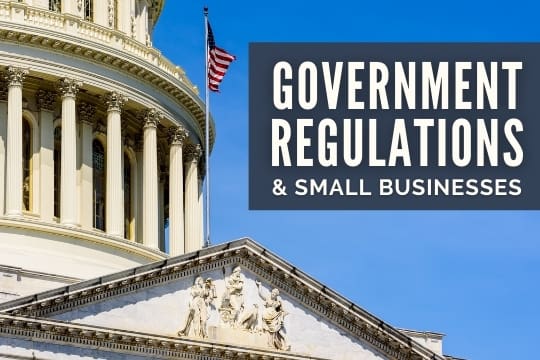New Regulations for Small Businesses – US 2024

The act was designed to shed light on shell companies and curb efforts by “criminals, organized crime networks, and other illicit actors” who use the financial system to conceal their identities and launder money, according to a 2022 statement by Treasury Secretary Janet Yellen.
Companies with more than 20 employees and annual revenue over $5 million may qualify for exemptions, but an estimated 32 million small businesses will not be exempt. Owners and part-owners of these businesses must register personal information with FinCEN, including a photo ID and residential address.
Despite some legal opposition, this rule is set to take effect in 2024. However, some deadlines have been extended: existing businesses now have until Jan. 1, 2025, rather than Jan. 1, 2024. New businesses, created after Jan. 1, 2024, must comply within 90 days, extended from the original 30-day period. Non-compliance could result in fines of up to $10,000.
Additionally, the IRS recently postponed a requirement to report payments over $600 via third-party providers, such as Venmo, Zelle, and online marketplaces. Initially delayed last year, this reporting threshold was scheduled for the 2023 tax year. Now, the IRS states it will not apply until 2024, with a phased approach, starting with a $5,000 threshold and eventually reaching the $600 mark.
This decision followed feedback from tax professionals and other groups to reduce confusion, IRS Commissioner Danny Werfel noted.
New reporting requirement for small business loans
Small businesses frequently struggle to secure loans due to limited profits or the lack of an established financial history, making it challenging to convince banks of their repayment ability. These barriers are particularly pronounced for women and minority-owned businesses.
To promote transparency and reduce discrimination in the loan application process, the Consumer Financial Protection Bureau (CFPB) announced a new rule requiring banks to report demographic and income data for small business loan applicants this year.
The goal is to build a database akin to the mortgage industry’s, which has collected data on home loan applicants for decades under the Home Mortgage Disclosure Act (HMDA) of the 1970s. This law requires mortgage lenders to report data like applicants’ race, location, loan approval status, and interest rates, allowing regulators and the public to monitor for potential discrimination, commonly known as redlining.
However, some small business advocacy groups argue that these new requirements could make the lending process slower and even more challenging for small businesses.
The Small Business & Entrepreneurship Council, represented by its president and CEO Karen Kerrigan, has expressed concerns that these regulations will overburden small businesses and financial institutions with costly paperwork, increase litigation and privacy risks for small business borrowers and lenders, push smaller banks out of the market, and reduce competition in the lending space.
Due to pending litigation, the CFPB has paused compliance deadlines for the small business lending rule. However, this development will likely be one to monitor in 2024.
National Labor Relations Board joint-employer rule
In October, the National Labor Relations Board (NLRB) updated its joint employer rule, broadening the definition of what constitutes a “joint employer.” Under the new rule, if two companies share some control over employee decisions—such as a franchisor and franchisee—they can both be held accountable for unfair labor practices. While this rule extends beyond franchises, it only applies to labor relations and impacts all private-sector businesses covered by the National Labor Relations Act.
Supporters, including unions and worker advocacy groups, argue that the revised rule will offer greater protection for workers. However, small business advocacy groups contend it places an undue burden on small businesses.
Initially set to take effect on December 26, the NLRB postponed the rule’s start date to February 26, 2024, in response to ongoing challenges in Congress and the courts.
Wages and overtime
In 2024, over 20 states will raise their minimum wages. For instance, Nebraska’s minimum wage is set to increase by $1.50 to reach $12 on January 1, while Florida’s rate will rise by $1 to $13 on September 30.
Additionally, the Department of Labor introduced a proposed rule in August that could extend overtime eligibility to an additional 3.6 million workers. If enacted, the rule would require employers to provide overtime pay to salaried employees in executive, administrative, or professional roles who earn less than $1,059 per week, or $55,068 annually for full-time roles. This new threshold would mark an increase from the current $35,568.
Karen Kerrigan, president and CEO of the Small Business & Entrepreneurship Council, anticipates that the final rule will likely face legal challenges, given the broad impact of the higher threshold on numerous businesses. Following the close of the public comment period on November 7, the Department of Labor could issue the final rule at any time in 2024.





